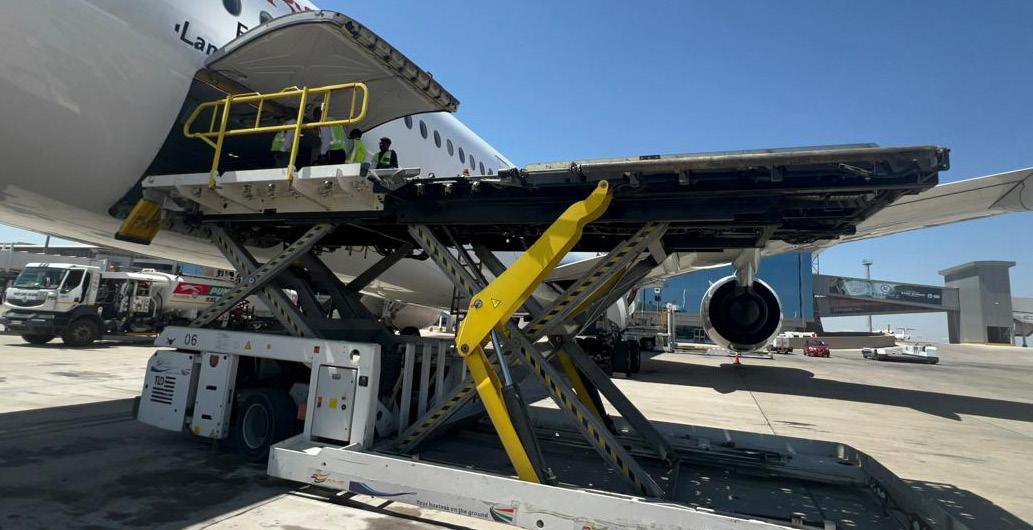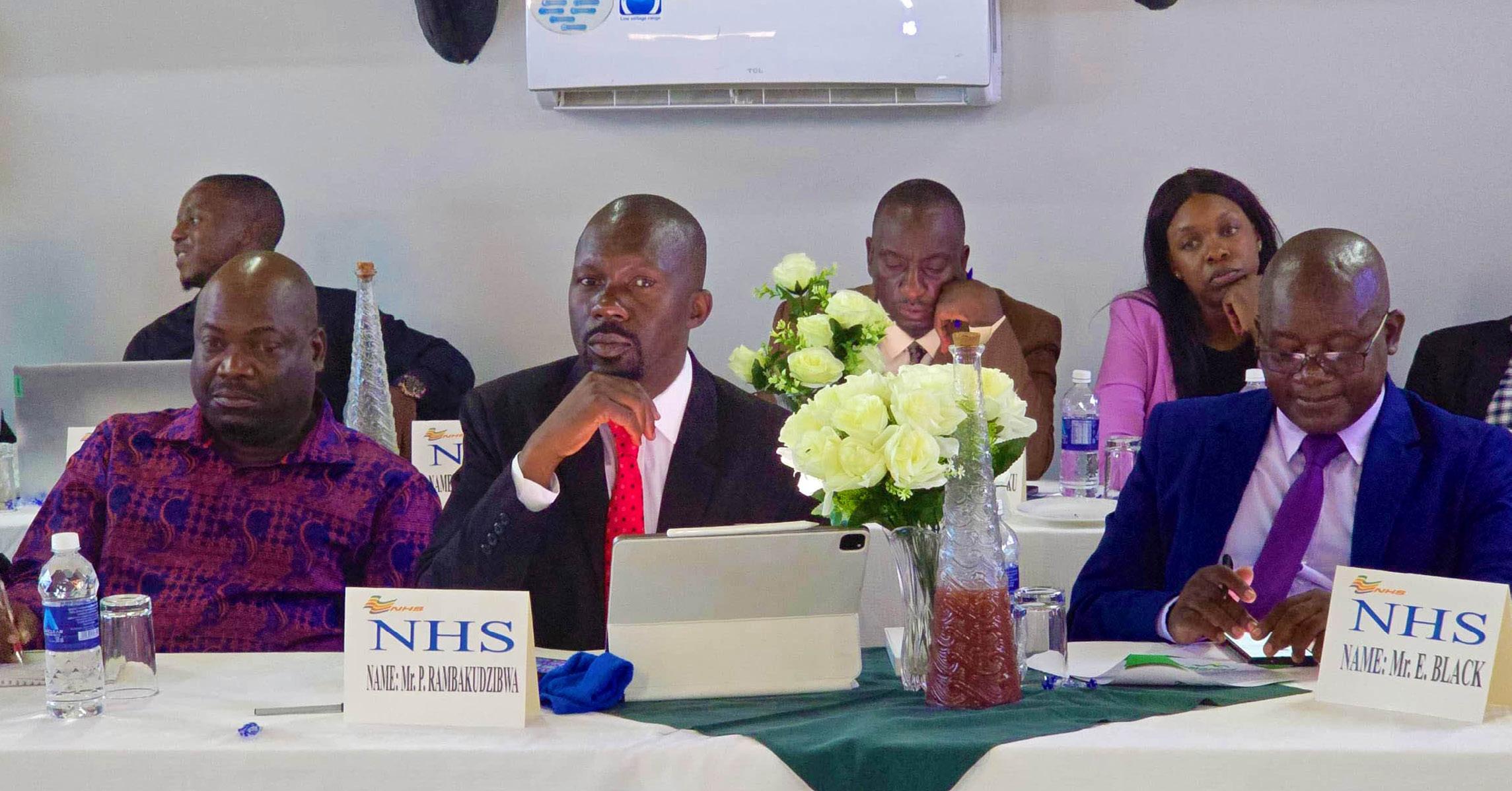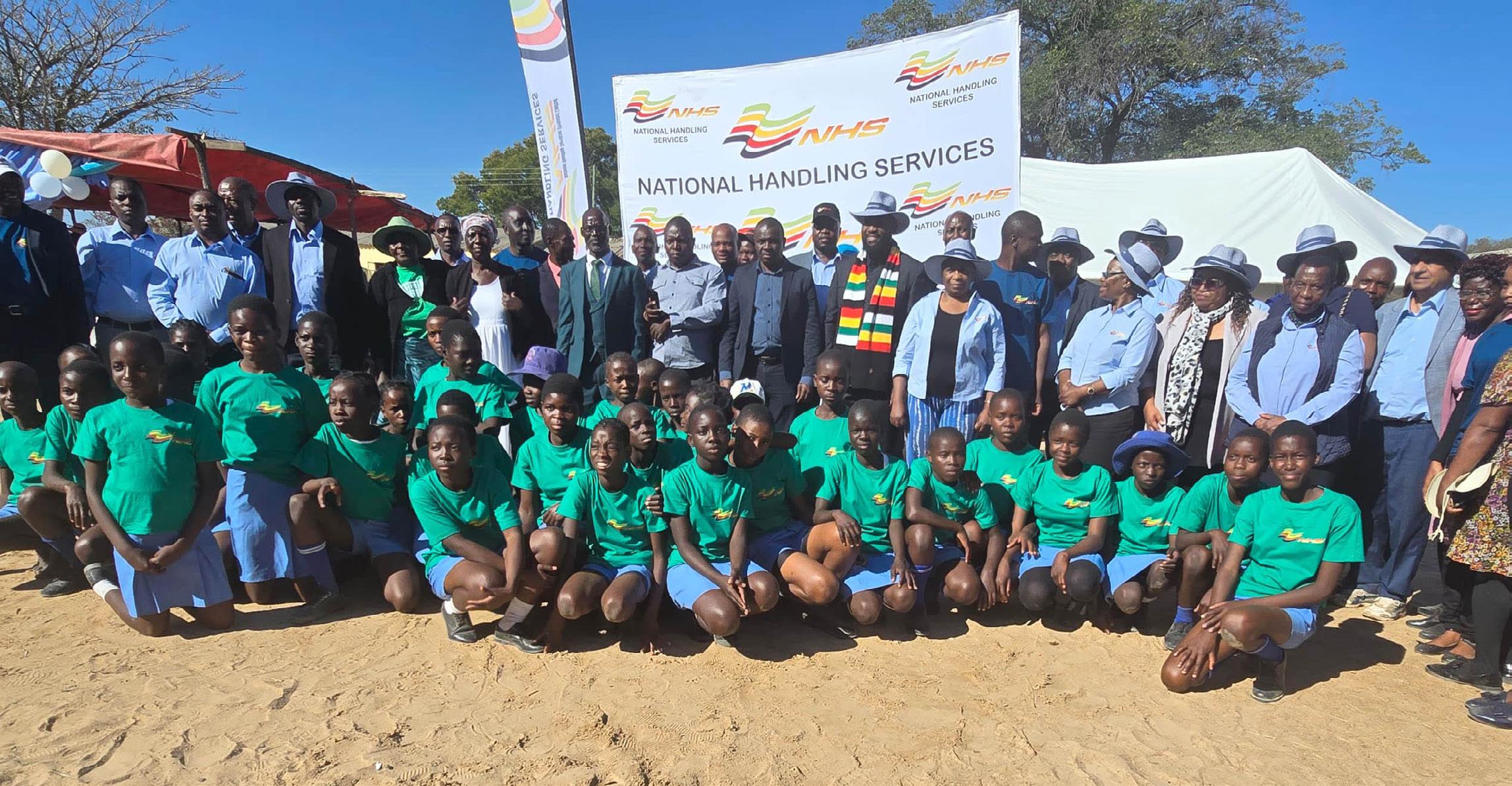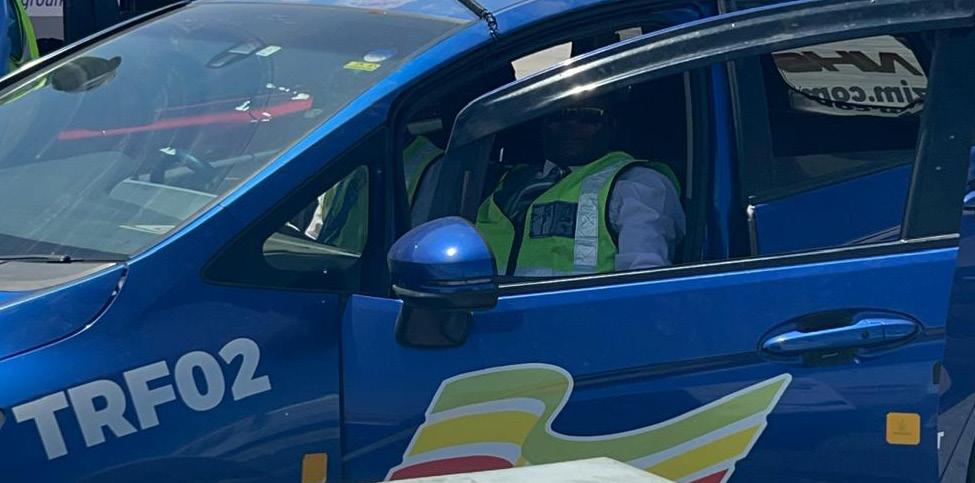Facilitating Travel and Trade Through Excellent Aviation Ground Handling and Inter-modal Logistical Services


Facilitating Travel and Trade Through Excellent Aviation Ground Handling and Inter-modal Logistical Services

In the high-stakes world of aviation ground handling, procurement plays a pivotal role in ensuring safety, compliance, and operational excellence. Victor Hamadziripi, Head of Procurement at National Handling Services (NHS), brings over a decade of experience across public institutions, regulatory bodies, and international NGOs, combining strategic foresight with a deep understanding of policy, systems, and execution.
In this exclusive interview, Victor shares how NHS is navigating complex procurement challenges in Zimbabwe’s aviation sector, from foreign currency constraints to evolving safety regulations. He outlines the organisation’s efforts to digitise procurement, champion sustainability, and forge value-driven supplier partnerships, all while maintaining 99% compliance with national procurement laws. For Victor, procurement is not just a function, it’s a mission-critical driver of long-term impact.




Can you share your professional journey and what led you to your role as Procurement Leader at National Handling Services? What pivotal moments have shaped your leadership style?
My career in procurement began soon after high school when I joined the Ministry of Science and Technology as an Administration Assistant while studying for a Diploma in Procurement and Materials Management. In 2013, I began my CIPS qualification and completed the Professional Diploma in 2015.
In 2018, I joined the Procurement Regulatory Authority of Zimbabwe as a Procurement Officer, where I was responsible for reviewing sensitive tenders and managing disposals under the newly introduced Public Procurement and Disposal of Public Assets Act (PPDPA). To enhance my strategic leadership capabilities, I completed an MBA in 2020.
That same year, I joined the Deposit Protection Corporation as Senior Procurement Officer, where I was tasked with setting up procurement policies, procedures, and documentation from the ground up. In 2022, I transitioned into the NGO sector as Procurement and Logistics Manager at APOPO Mine Action, where I established the procurement framework and also served as Country Program Manager for three months.
In 2023, I was appointed Head of Procurement at National Handling Services. Since then, I have aligned the procurement policy with updated regulations, improved compliance to 99%, and overseen major projects including the procurement of Ground Support Equipment, VIP lounge construction, and cold room expansion, continuing to champion efficiency and regulatory excellence.
How does the procurement function contribute to ensuring safety, reliability, and operational excellence in aviation ground handling services at NHS?
At National Handling Services (NHS), procurement is a strategic function that underpins safe, reliable, and efficient ground handling operations. It ensures alignment with regulatory compliance, service quality, and operational needs.
Safety is a top priority. We source Ground Support Equipment (GSE) and materials exclusively from certified suppliers who meet ICAO, IATA, and local safety standards, minimising equipment failure and enhancing ramp safety.
To ensure reliability, we conduct rigorous supplier evaluations and ongoing performance monitoring. This allows us to partner with vendors who consistently deliver quality products on time, supporting smooth operations and faster aircraft turnaround.
Procurement is also fully integrated with planning and operations. Through accurate forecasting and streamlined sourcing, we ensure the timely availability of critical spares and services, reducing delays and boosting efficiency.
In terms of compliance and risk mitigation, we uphold strict adherence to the Public Procurement and Disposal of Public Assets (PPDPA) Act, achieving a 99% compliance rate. This commitment minimises legal risks and reinforces transparency across the procurement function.
Cost efficiency is achieved through competitive bidding, framework agreements, and in-depth market analysis. These practices help us maximise value for money while maintaining quality, enabling NHS to reinvest in critical areas such as infrastructure, staff training, and safety enhancements. At NHS, procurement is more than a transactional function, it is a strategic driver of operational excellence.

Sustainability is a growing priority across industries. How is National Handling Services incorporating environmentally responsible practices in its procurement and supplier selection processes?
At National Handling Services (NHS), sustainability is a key pillar of our procurement strategy, supporting both environmental responsibility and operational efficiency.
We have actively transitioned toward more sustainable ground handling operations by procuring electric and LP gas-powered tow tugs. These low-emission alternatives significantly reduce our carbon footprint on the apron, aligning with global best practices in sustainable aviation support services.
Supplier compliance is another critical area of focus. NHS ensures that all suppliers meet strict safety and sustainability criteria, including full compliance with National Social Security Authority (NSSA) requirements. This fosters a culture of responsible business practices and promotes worker welfare across our supply chain.
When selecting suppliers, we prioritise vendors who demonstrate strong environmental stewardship— such as those offering energy-efficient technologies, recyclable packaging, and environmentally conscious logistics. Our evaluation criteria increasingly favour suppliers with ISO 14001 or equivalent environmental certifications.
Sustainability principles are now embedded within our procurement policies and procedures, guiding teams to consider environmental impact at every stage, from sourcing to disposal. Through thoughtful procurement decisions and rigorous supplier vetting, NHS is committed to supporting Zimbabwe’s sustainable development goals while delivering world-class, environmentally responsible ground handling services.


What approach do you take to build and maintain long-term, high-performing supplier relationships, especially in a time-sensitive industry like aviation?
In the fast-paced aviation industry, maintaining long-term, high-performing supplier relationships is key to ensuring uninterrupted service. At National Handling Services (NHS), we take a strategic, transparent, and collaborative approach focused on performance and mutual value.
We establish framework agreements with key suppliers to ensure consistent quality, pricing stability, and faster lead times, particularly for critical recurring needs such as Ground Support Equipment (GSE), spares, and maintenance.
To promote transparency and alignment, our Annual Procurement Plan is uploaded to the e-Government Procurement (e-GP) system. This gives suppliers visibility into upcoming opportunities, allowing them to prepare in advance and align with our operational timelines.
We also negotiate favourable credit terms to support supplier sustainability and maintain a healthy cash flow, which reinforces trust and operational agility.
Supplier performance is closely monitored across quality, delivery timelines, compliance, and responsiveness. Regular feedback sessions and performance reviews foster accountability and continuous improvement.
Finally, all suppliers are required to meet legal and institutional obligations, including NSSA registration and compliance with the Public Procurement and Disposal of Public Assets Act, ensuring that our partnerships are safe, ethical, and sustainable.
This comprehensive approach enables NHS to build resilient, value-driven supplier relationships that are essential for ground handling excellence.
How is NHS leveraging digital tools or platforms to streamline procurement processes and improve supply chain visibility and efficiency?
At National Handling Services (NHS), we are actively leveraging digital platforms and tools to enhance procurement efficiency, improve transparency, and strengthen supply chain visibility. Our approach integrates technology across several key areas of the procurement lifecycle.
We utilise Zimbabwe’s e-Government Procurement (e-GP) platform to manage procurement endto-end, from planning and tender publication to contract awards and supplier performance tracking. This platform promotes transparency, ensures compliance with public procurement regulations, and provides real-time visibility into procurement activities for both management and suppliers.
To reduce delays and costs associated with physical inspections, we have adopted virtual PreDelivery Inspections (PDIs), particularly for imported equipment. Through live video sessions, suppliers demonstrate product readiness and compliance before shipment, enabling quality assurance while accelerating delivery timelines.
We also maintain strong supplier engagement through regular virtual meetings. These sessions allow for real-time updates, issue resolution, and alignment on delivery schedules — enhancing responsiveness and creating a more agile procurement environment.
Our procurement team maintains a digitally accessible and continuously updated procurement plan, shared via the e-GP platform. This ensures that all internal and external stakeholders remain aligned on priorities and timelines, resulting in improved coordination and accountability across the board.


Given the critical nature of equipment and consumables in ground handling, how do you manage inventory planning and forecasting to ensure readiness without overstocking?
At National Handling Services (NHS), we balance operational readiness and efficiency through strategic inventory planning and forecasting tailored to the specific demands of ground handling operations.
We operate a dedicated facility for Ground Support Equipment (GSE) components and consumables, allowing for proper tracking, segregation, and quick access for our maintenance teams.
For frequently used items such as lubricants, filters, and personal protective equipment (PPE), we maintain a minimal buffer stock based on usage trends and lead times. This ensures daily operational continuity while avoiding excess inventory.
For high-value or less frequently used parts, including engines and hydraulic systems, we adopt a Just-In-Time (JIT) approach. These components are ordered in line with scheduled maintenance and alerts, helping to reduce holding costs without compromising availability.
Our inventory forecasts are fully integrated with equipment maintenance plans, traffic patterns, and the annual procurement plan published on the e-GP system. This coordinated approach enhances preparedness and supports seamless operations.
We also engage in regular virtual meetings with suppliers, which provide early insights into potential supply chain disruptions and allow us to make timely adjustments to our inventory plans.
By combining lean stock practices, dedicated storage, and data-driven forecasting, NHS ensures the availability of critical items while optimising inventory efficiency.
Aviation services are highly regulated. How does NHS manage procurement risks and ensure supplier compliance with both safety standards and regulatory requirements?
At National Handling Services (NHS), we manage procurement risks and ensure supplier compliance with aviation safety and regulatory standards through a structured, end-to-end approach that prioritises transparency and accountability.
Before awarding any contracts, we conduct thorough due diligence. This includes evaluating suppliers on NSSA compliance, past performance, relevant certifications (such as ISO or IATA), capacity, and legal standing to ensure we engage only credible and capable vendors.
Our tender documents are carefully prepared to clearly define safety, legal, and technical requirements, along with evaluation criteria and delivery expectations. This ensures all bidders understand and commit to compliance from the outset.
Post-award, we closely monitor contract performance through regular reviews, milestone tracking, and strict adherence to service level agreements (SLAs). Any instance of non-compliance is addressed promptly through corrective measures outlined in the contract.
All procurement activity is fully aligned with the Public Procurement and Disposal of Public Assets (PPDPA) Act and relevant aviation safety standards. We ensure that Ground Support Equipment (GSE) and other critical supplies meet all regulatory and safety requirements before acceptance.
Additionally, we leverage the e-Government Procurement (e-GP) system to maintain an auditable, transparent procurement trail, which supports oversight by both internal and external stakeholders.
This comprehensive framework ensures procurement integrity, safety, and full regulatory compliance at NHS.


What are some of the unique procurement challenges within the aviation services industry in your region, and how do you navigate them?
The aviation services industry in our region faces unique procurement challenges that impact operational continuity, cost efficiency, and regulatory compliance. At National Handling Services (NHS), we tackle these issues through adaptive strategies and cross-functional collaboration.
One major challenge is the limited availability of local suppliers for specialised items such as Ground Support Equipment (GSE), aviation-grade parts, and certified safety gear. These often need to be sourced internationally, which adds complexity to lead times, quality assurance, and compliance checks.
Foreign payment constraints are another significant hurdle. Exchange controls and limited forex availability complicate international transactions. We manage this by planning purchases early, securing necessary approvals in advance, and negotiating flexible payment terms with our suppliers. Extended lead times for manufacturing and shipping are common in aviation procurement. To mitigate this, we use a Just-In-Time (JIT) approach for major components, maintain buffer stocks for frequently used items, and align procurement closely with maintenance schedules to avoid disruption.
Customs clearance delays can also pose risks due to regulatory bottlenecks or documentation issues. We address this by ensuring accurate and complete import documentation, engaging customs agents early, and maintaining close contact with relevant authorities to expedite processing. From a contractual standpoint, we use well-structured agreements with clearly defined delivery terms such as DDP or CIF, along with performance guarantees and penalty clauses. Our procurement team also monitors global supply chain trends to anticipate disruptions and reduce risk exposure. These proactive measures enable NHS to navigate procurement challenges effectively and maintain seamless, compliant aviation operations.

What trends do you believe will most influence procurement in the aviation ground handling sector in the next 3–5 years, and how is NHS preparing for them?
Over the next three to five years, several key trends will reshape procurement in aviation ground handling. At National Handling Services (NHS), we are proactively aligning our strategies to lead these changes and stay ahead of industry developments.
Sustainability and green procurement are becoming central to sourcing decisions. NHS is actively reducing its carbon footprint by procuring electric and LP gas-powered tow tugs and prioritising environmentally friendly options in all tenders.
The shift to capital-intensive green equipment brings funding challenges. We are addressing this through long-term planning, forming funding partnerships, and leveraging framework agreements to manage costs and secure stable supply.
As competition in aviation services intensifies, procurement must be more strategic and value-driven. NHS ensures this through the use of Zimbabwe’s e-GP system, transparent bidding processes, and robust supplier performance tracking to guarantee compliance and value for money.
Evolving safety standards also demand greater rigour in procurement practices. We embed safety checks into bid evaluations, conduct virtual pre-delivery inspections, and enforce supplier compliance through detailed contract management.
Finally, digital transformation continues to shape the future of procurement. NHS is leveraging virtual supplier meetings, e-procurement platforms, and digital inventory tracking to drive data-informed decisions, reduce lead times, and improve overall supply chain visibility.
These trends are guiding NHS’s procurement strategy toward more sustainable, efficient, and fully compliant operations as we look to the future.
As a seasoned procurement leader, what advice would you give to young professionals in Africa looking to build a successful career in procurement and supply chain?
As a seasoned procurement professional, my advice to young practitioners across Africa is to build your careers on a strong foundation of discipline, integrity, and continuous learning.
Discipline is essential, procurement demands accuracy, timeliness, and consistency. Develop the habit of being thorough, organised, and dependable in every task, no matter how small it may seem.
Integrity is non-negotiable. In a field often exposed to ethical pressure, always uphold transparency, fairness, and accountability. Shun corruption and fraud, your credibility is your greatest asset.
Commit to continuous learning. Stay informed on procurement laws, emerging technologies, and global supply chain trends. Pursue professional certifications like CIPS, attend workshops, and read widely to remain current and competitive.
Network actively. Engage with mentors, professional associations, and industry events. Strong relationships can open doors to new opportunities and enrich your knowledge base through shared experiences.
Lastly, always align your procurement decisions with your organisation’s broader goals. Understand the strategy behind your operations, and let your work contribute to efficiency, cost-effectiveness, and long-term value creation.
Success in procurement isn’t just about purchasing, it’s about making sound, ethical, and strategic decisions that drive sustainable impact. Uphold the profession with pride and purpose, and you’ll build a career that truly matters.
National Handling Services is a Zimbabwean provider of full ground handling, cargo & mail, ramp, passenger, VIP/charter, and intermodal logistics services at key airports. With a commitment to safety, professionalism and efficiency, NHS facilitates travel and trade through excellent aviation handling and support services.
